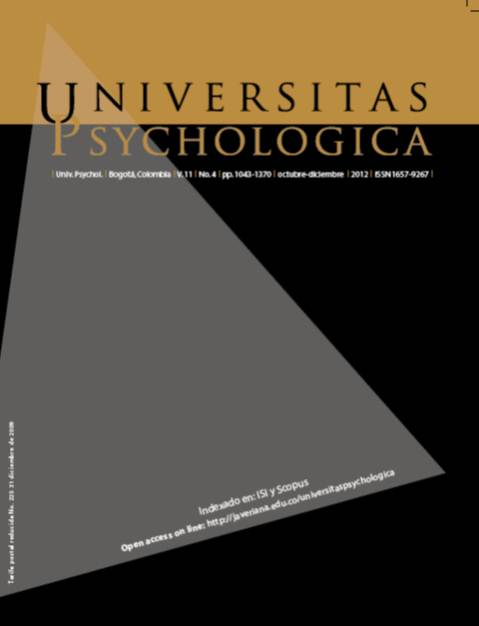Abstract
This study investigates aspects of living with peers in adolescent offenders in the Brazilian context based on the social and personal control behavior theory developed by Marc Le Blanc and his colleagues. Both comparative and quantitative approaches were used to study two groups: Delinquents/adjudicated and control. A questionnaire developed by Le Blanc and adapted to the reality of the study was applied to 75 participants. A significant level of 0.05 was adopted and the data analysis showed that delinquents developed poor relationships suggesting an experience of greater socio-emotional isolation. This refers to the problematic experience in one of the major developmental tasks of this period. Further studies should be developed to analyze the interactions between the coexisting aspects in the family, at school and with peers.
This journal is registered under a Creative Commons Attribution 4.0 International Public License. Thus, this work may be reproduced, distributed, and publicly shared in digital format, as long as the names of the authors and Pontificia Universidad Javeriana are acknowledged. Others are allowed to quote, adapt, transform, auto-archive, republish, and create based on this material, for any purpose (even commercial ones), provided the authorship is duly acknowledged, a link to the original work is provided, and it is specified if changes have been made. Pontificia Universidad Javeriana does not hold the rights of published works and the authors are solely responsible for the contents of their works; they keep the moral, intellectual, privacy, and publicity rights. Approving the intervention of the work (review, copy-editing, translation, layout) and the following outreach, are granted through an use license and not through an assignment of rights. This means the journal and Pontificia Universidad Javeriana cannot be held responsible for any ethical malpractice by the authors. As a consequence of the protection granted by the use license, the journal is not required to publish recantations or modify information already published, unless the errata stems from the editorial management process. Publishing contents in this journal does not generate royalties for contributors.


